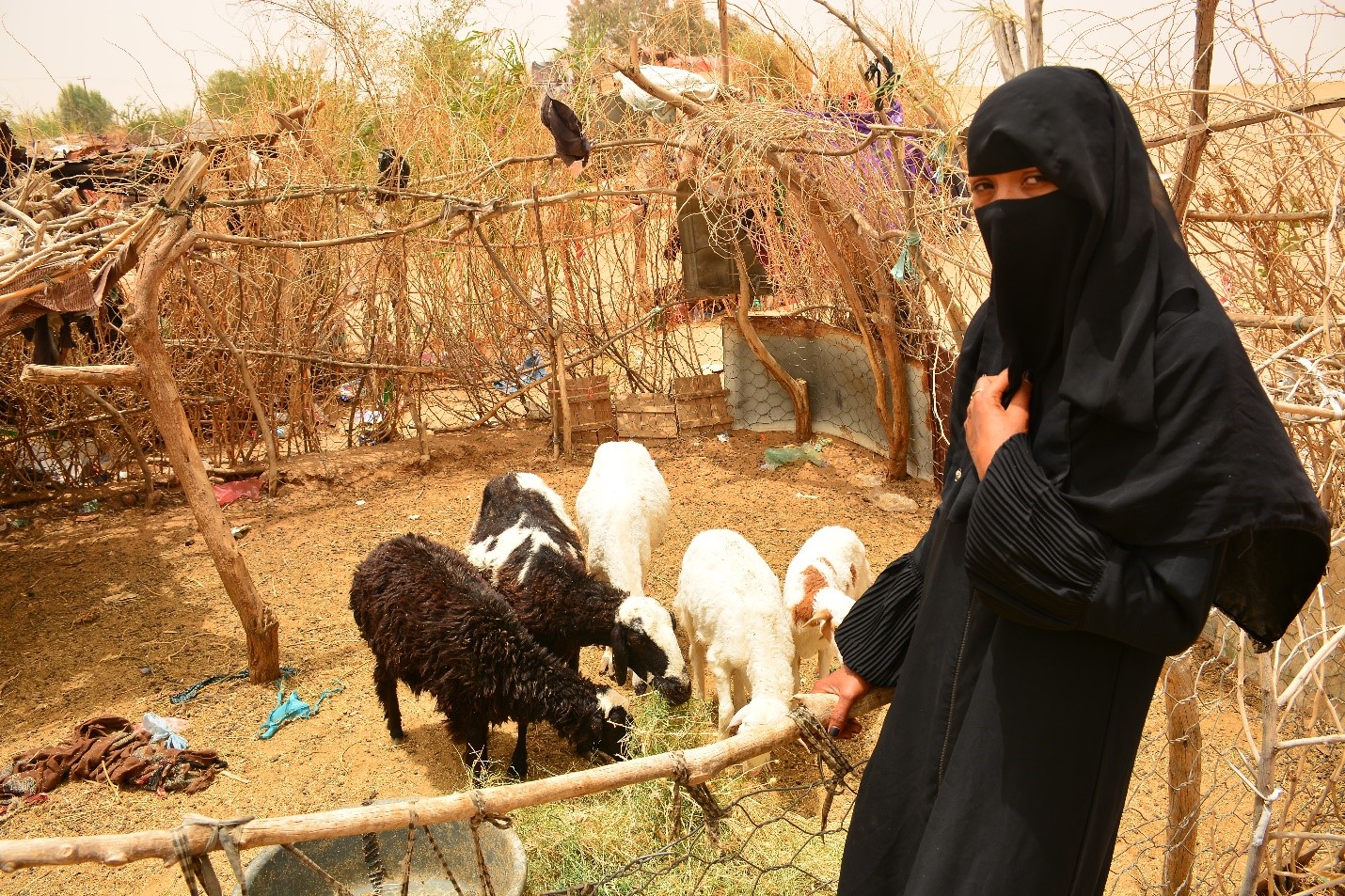Due to the prolonged conflict that has ravaged the country, Yemen has the fourth-highest level of internal displacement in the world. More than 4 million people have been displaced since 2015; 73% of whom are women and children. The majority of displaced families in Yemen have been displaced for more than two years and in some cases several times, which has intensified their vulnerabilities.
“We used to have a simple but calm life prior to displacement,” says 25-year-old Maha from Yemen’s Marib governorate. “It is rare for girls to finish their education, but I was lucky to graduate from secondary school. After graduating from school, I got married and started a new life so wasn’t able to go to the university.”
In rural areas of Yemen, girls often drop of school at a young age to be prepared for marriage and rural life responsibilities. Maha’s husband used to work as a driver and was able to put food on the table for his family.
Reminiscing about her displacement journey, Maha says: “Two months after my marriage, fighting erupted in my village. I can’t remember anything but screaming, loud explosions and fire. Shrapnel rained down on the village and many lives were lost. I never thought that this would happen to us. My husband and I were fortunate to be able to flee. We couldn’t pack much of our stuff, but we took what we could and ran for our lives.”
Displaced families are uprooted from their homes and deprived of security, shelter, food, water and livelihoods. Maha and her family are from Hosoun area to Al Maraf village, where an IDP shelter has been established. They didn’t know where else to go and decided to settle there and try to adapt to life as a displaced person. Maha’s husband started to look for work to provide his wife with daily essentials. One month after they were forced to flee their homes a shell exploded next to him, and he was badly injured and became unable to work. As a result, Maha resorted to selling the very few belongings they managed to take with them when they fled, in order to buy basic supplies and the most important medications for her husband.
“Our situation deteriorated more and more, and I have to bear the burden of displaced life with very little support,” says Maha while describing the difficulties of her life now. “I sometimes think that an IDP is very likely to die because of hunger and diseases.”
Being uprooted without any resources can mean people feel unproductive and powerless. However, Maha has faced this challenge with all her power. “I heard that there is an aid organization that employs people in the camp to do some rehabilitation work so I decided to join them,” she says.
With funding from the UK’s Foreign, Commonwealth & Development Office (FCDO), CARE has provided unconditional cash transfers and cash-for-work activities in eleven districts of the Marib Alwadi area.



